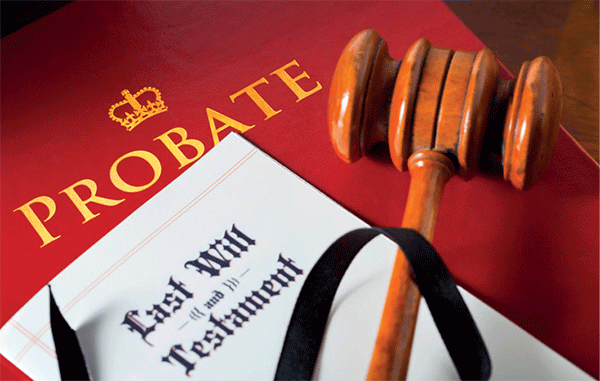10 things to know about preparing for divorce in England and Wales
31st August 2022 11:50
by Faith Glasgow from interactive investor
Divorce can be an expensive and stressful business. Faith Glasgow looks at 10 ways to prepare for divorce and protect your wealth.

Divorce remains a sad fact of modern life. Around a third of UK marriages over the 50 years to 2019 have ended in divorce, according to ONS data analysed by NimbleFins (although there was a decrease of 4.5% in 2020, probably reflecting court disruption during the pandemic).
Over the decades, however, there have been significant changes in the length of marriages that end that way. While divorce rates are largely unchanged among marriages of less than 10 years, rates among marriages lasting 30 years have risen by 76% as the number of ‘silver splitters’ aged 55-plus has boomed. That in turn has potential implications for the financial value and complexity of divorce settlements.
- Read about: Free regular investing | Opening a Stocks & Shares ISA | Cashback Offers
If you’re trying to build your retirement income and wealth, then getting divorced could cause a serious dent in your finances. Here are 10 issues to think about before you divorce your partner.
1) Is this definitely the best route?
Divorce is final; it’s complex, stressful and painful, and definitely not something to be decided in the heat of the moment. Is there any possible mileage in marriage guidance counselling from Relate? Talking with a third party could at least help to smooth the transition process and thereby help keep legal costs down.
You have to have been married at least a year to be able to apply for a divorce.
Ending a marriage also tends to be an expensive business in terms of lifestyle changes. The average amount spent in the UK on legal and lifestyle costs in the course of divorce was almost £15,000 in 2018, according to an Aviva report - and that was not including the cost of buying or renting an additional home after the break-up.
Legal fees in 2018 averaged almost £2,700 per person, Aviva found. But additional wrangles over child arrangements or the financial settlement can rapidly push costs into five figures, especially if matters end up in a court hearing.
2) No fault-divorce: the new law
Divorce law changed in April 2022. You can find out all about how to apply for a divorce under the new ‘no-fault divorce law’ at Get a divorce: How to apply.
Couples no longer have to prove that the marriage has broken down through adultery, unreasonable behaviour or separation: applying for divorce is evidence of that. If one spouse wishes to divorce the other, then it is not possible for the other to contest it (apart from in a very limited number of circumstances to do with the jurisdiction of the court).
This is good news for many separating couples. As Jennifer Dickson, partner at law firm Withers, says: “No-fault divorce is a game-changer. For the first time, couples can apply jointly or on their own for their divorce, without apportioning blame or waiting two years.
“It sets the scene for a more collaborative end to the marriage or civil partnership, which can only benefit the couple, their children, and their pockets.”
3) No-fault divorce: the costs
The court fee to issue an application for divorce (whether one partner applies, or both apply jointly) is currently £593. This is in addition to fees charged by solicitors.
The default position as to who pays for the costs of the divorce is now that the court will not make a costs order unless there has been clear and obvious misconduct in how one person has dealt with the divorce proceedings.
Couples can agree to share the costs, but in the absence of an agreement, the person applying usually bears the brunt of the costs associated with the divorce. However, each spouse/partner should also seek (at least basic) advice from a solicitor.
There are financial claims and consequences arising from divorce and these need to be addressed alongside the divorce itself. The legal fees relating to the financial issues or those around children can escalate, so you should always seek legal guidance about the likely costs involved.
As mentioned, if a financial settlement is needed - and there is very good reason to formalise your arrangement in this way, as we discuss below – this will add further costs. A simple, straightforward agreement reached between you, where you pay a solicitor to review and draft a Financial Remedy Consent Order or FRCO (which requires a formal application to court), will require further investment.
The government’s MoneyHelper website suggests this may add at least £300-£400, but it is likely to be significantly more – it all depends on the value and complexity of your finances and the amount charged by the solicitor you instruct. Getting good advice early on is likely to save you money in the long run.
4) Mediation can be much cheaper than litigation
Relatively few cases actually end up in court at a ‘final hearing’, as most financial cases on divorce are resolved through mediation. The court then approves the settlement ‘on paper’ (now digitally). Mediation is a way of coming to agreement without having contested court proceedings. The mediator is a neutral third party (often a family lawyer) who helps you both sort out arrangements and come to agreement over the various aspects of the break-up.
Mediation is private and confidential. It involves an initial meeting, which usually costs between £50 and £120, called the Mediation Information and Assessment Meeting (MIAM); if you do end up going to court then you’d need to confirm to the courts that you had attended this meeting, as it’s a court requirement.
Thereafter, mediation sessions are generally charged at between £150 and £300 per 1.5-hour session (split between the couple) and it usually takes couples four to six sessions to reach a solution. This is then transformed into a court order with the help of legal advice.
A 2019 survey by the Family Mediation Council found the national average cost of successful divorce mediation for both participants, including the MIAM and paperwork came to just over £1,600.
By contrast, says MediateUK, a mediation service: “The average cost for divorce litigation stands at £20,000 for a financial matter, but costs can increase considerably. Also, the average length of time to resolve matters through a court is 11.5 months.”
Mediation is just one of a number of non-court options for separating couples. Many law firms now offer a ‘one couple one lawyer’ service, which incorporates elements of mediation and also evaluation to achieve a fair outcome.
Withers’ service Uncouple is one such example. As Claire Blakemore, partner at Withers, explains: “Some clients have been advised that it is not legal for one lawyer to work with a couple, but that's completely wrong. I always tell my clients from the outset what I think is the best route for them, based on what I’m told. I’m not wedded to one route: I can litigate hard if needed, but equally I’m a dealmaker. It’s about adapting to your clients’ situation.”

5) Put a financial settlement in place
A formal end to your marriage – known as the Final Order – does not mean your financial affairs are formally separated or your respective financial claims have been dealt with. Without a financial settlement approved by the court (the FRCO), financial issues can remain unresolved and informal agreements are not legally binding.
Even if the divorce has been approved by the court, some of the financial claims relating to the marriage remain alive and need to be addressed. Sometimes it will also be important for a court-ordered ‘clean break’ to be put in place, ending any financial obligation you have towards each other in relation to the marriage. But claims for the benefit of children remain alive until adulthood and can extend to university education, as each parent has an ongoing obligation to support their children.
The FRCO will set out how the house, other property, money and investments, debt, and pensions will be shared between you both and what should be paid in spouse or child lump-sum or maintenance payments. It will also record any agreement about dividing personal belongings such as pets or cars.
There is no time limit if you want to submit an application for an FRCO, but delay can work against you.
Additionally, after the Final Order has been granted there are implications for some assets, notably pensions (and spousal maintenance, if you remarry before a claim is made). That’s because pensions can only be transferred to a spouse, and ex-spouses therefore don’t qualify for pension sharing orders.
6) Don’t overlook your pension rights
The Great British Retirement survey of 12,000 people by interactive investor in 2021 found that 11% of those who said their retirement plans had been disrupted cited the break-up of their marriage. Yet of that group, only 41% had discussed pensions as part of the divorce proceedings. Among women, only 30% had done so.
It’s a worrying situation, says Becky O’Connor, head of pensions and savings at interactive investor. “People are suffering financial hardship as a result of divorce, that is avoidable with better guidance.”
O’Connor adds: “Along with a family home, a pension is likely to be one of the biggest joint assets that a couple builds up during their life together. Despite the introduction of the Welfare Reform and Pensions Act 1999, which introduced the concept of pension sharing as a solution for a former spouse to share in the pension rights of their ex-partner, there remain countless examples of divorce settlements that leave one partner, usually the woman, worse off in retirement.”
A financial initial assessment meeting (FIAM) with a specialist financial adviser (known as a financial neutral) can provide an overview of the assets, including pensions, that a couple holds and their true value, and outline the options available for dividing them. But it’s not straightforward to find a financial neutral. You can find out more about FIAMs and financial neutrals here.
- Divorce Day 2022: don’t leave pensions out of the conversation
- Gender pension gap forms around the age women have first child
- Older female divorcees could be missing out on £50,000 in state pension
7) Look at the family home
If divorce is on the horizon, your partner is the legal owner of your home and you’re worried that you may be evicted or lose access to it, it’s important to register your Matrimonial Home Rights with the Land Registry. These give both spouses an automatic legal right to occupy the matrimonial home, regardless of whose name the property is in.
If you both own the property as joint tenants (which is the case for most couples), it’s sensible to consider changing ownership from ‘joint tenancy’ to ‘tenants in common’, again through the Land Registry.
Making this change means that if you die unexpectedly, your spouse will no longer automatically inherit the whole property and you can leave your share of it to other family members or friends in your will.

8) Revisit your will
In England and Wales, getting divorced can alter the terms of your will. Although it remains valid, your ex-partner is no longer able to benefit from it, unless you have expressly stated that they should do so if you divorce. They are also no longer able to act as an executor or trustee for the will.
Once a Final Order in the divorce has been issued, assets left to your ex-partner in your will are treated as if the partner had died when your marriage ended. As a result, whatever they were set to inherit goes to the next beneficiary entitled to it in line with the terms of the will.
If there are no other beneficiaries named, then your estate is dealt with as if you had died without putting a will in place (known as dying “intestate”). In these circumstances, the rules of intestacy kick in.
As Andrew Dixon, head of wealth planning at Kleinwort Hambros explains, that’s not an ideal outcome. “These rules place relatives in order of priority and they’re strict, sometimes not providing for modern family relationships. If this happens, there is a risk that your estate could end up not being distributed in the way that you would have wanted. So it’s important to update your will as soon as possible after divorcing.” It could be sensible to review it before divorcing too.
It’s worth noting that if you separate from your partner but don’t divorce, your will remains valid and they will be entitled to inherit as before. If you don’t want that to happen, it’s important to replace it with an updated will.
9) Don’t forget life insurance policies
Joint life insurance – for instance a policy taken out to cover a shared mortgage – is still valid after a divorce. Unless it’s cancelled, the cover will remain in place until the end of the policy’s term, which means your ex-partner would receive the policy benefits if you died during that time.
If you decide to sell the house as part of the break-up, you’re likely to want to cancel your life insurance policy and take out new cover to protect your new living situations.
However, it often happens that the agreement provides for one partner to remain in the house, and in some cases the other partner may be liable for the mortgage payments as part of the spouse or child maintenance agreements. As Dixon observes, “This means that the partner living in the property still has a financial interest in the life of their ex.”
He adds: “When this is the case, if it’s not already in place and agreed as part of the divorce settlement, life insurance on the life of the partner responsible for the mortgage payments should be considered by the individual living in the property, so that in the event of their ex’s death an insurance payment to cover the outstanding mortgage liability over the property will be paid out.” This, he says, is often overlooked.
10) Tax considerations when splitting assets
If you’re transferring cash, investments or other assets as part of a divorce deal, you may need to pay capital gains tax. But it will depend on when the transfers take place and whether they’ve increased in value since they were acquired.
Dixon makes the point that if the division of assets can be agreed and completed before the divorce is finalised, then “the usual spousal transfer exemptions still apply, and as a result the assets will be transferred at their current value and with no capital gains tax due at this point”.
However, if the spouse who receives them subsequently decides to sell, they will need to know the original acquisition cost at that point. “If it is not considered when negotiating the separation of assets, then the receiving spouse may end up with a lower net amount to finance their own lifestyle when coming to liquidate these assets for their own use,” he explains.
The alternative scenario is to split assets after the Final Order in the divorce has been granted. Then the original owner could end up with a CGT bill when they make the transfer, while the recipient receives them with a new current ‘base cost’.
“This would reduce any possible CGT liability for the receiving spouse if they later come to liquidate the asset,” Dixon adds. Much depends on the date of separation when it comes to CGT so it's worthwhile seeking tax advice from your family lawyer or an accountant.
These articles are provided for information purposes only. Occasionally, an opinion about whether to buy or sell a specific investment may be provided by third parties. The content is not intended to be a personal recommendation to buy or sell any financial instrument or product, or to adopt any investment strategy as it is not provided based on an assessment of your investing knowledge and experience, your financial situation or your investment objectives. The value of your investments, and the income derived from them, may go down as well as up. You may not get back all the money that you invest. The investments referred to in this article may not be suitable for all investors, and if in doubt, an investor should seek advice from a qualified investment adviser.
Full performance can be found on the company or index summary page on the interactive investor website. Simply click on the company's or index name highlighted in the article.